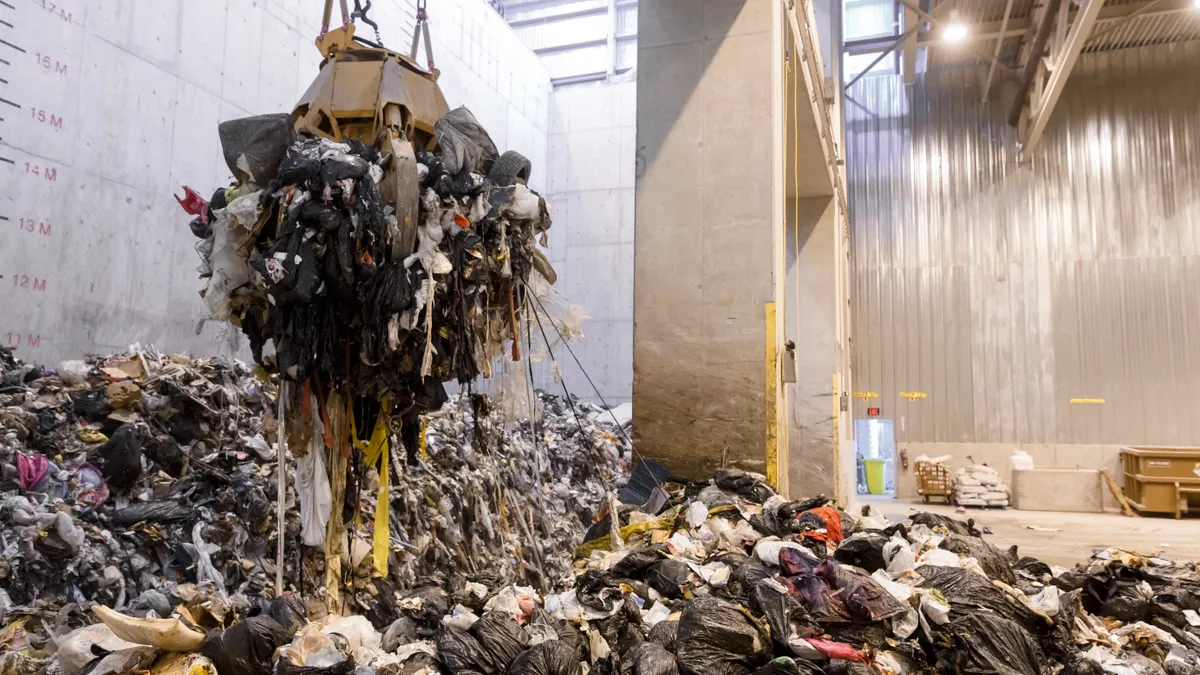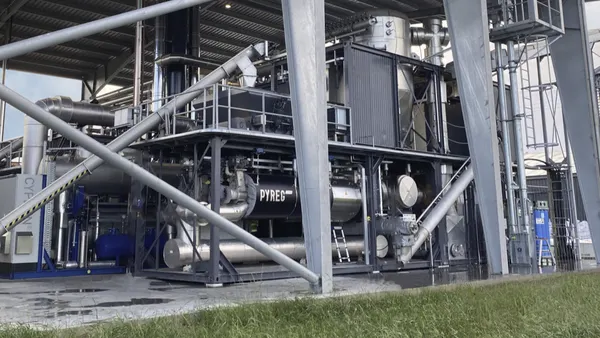Dive Brief:
- Covanta reported $424 million in revenue for the second quarter of 2017, up $6 million from the year before. Adjusted EBITDA was $93 million, up $11 million, and waste-to-energy revenue increased to $242 million. CEO Stephen Jones said that having this growth despite unexpected downtime at a facility in Fairfax County, VA, was a sign of strength from increased pricing in new contracts. "It's a good time to be a waste company," he said during the earnings call.
- Jones confirmed that the company's new Dublin facility, which was temporarily shut down due to a safety incident in June, is back on track for commissioning and will be fully operational by the end of the year. Looking ahead, he described the recent announcement of an agreement with Biffa to pursue two new WTE facilities in the U.K. as the next step in creating a "more robust business developer pipeline." Those projects are still expected to come online after the previously announced Rookery project being developed with Veolia, also in the U.K.
- As part of a growing interest in profiled waste, Covanta's executives said that drug take-back programs presented an especially good opportunity. CFO Brad Helgeson said this material "punches far above its weight from a revenue standpoint." While the material currently comprises about 5% of the volume they process it accounts for more than 10% of their revenue. Jones estimated that the company currently has capacity to double the amount of special waste it takes in without having to rearrange any municipal solid waste tonnage.
Dive Insight:
Despite longer than expected downtime at Fairfax and temporary challenges at Dublin, Covanta's latest quarterly numbers show the company is built to weather such surprises. Insurance payments have already begun to come in for lost time and equipment damage at Fairfax, with the full amount set to come through in 2018. Jones said the overall net financial impact is expected to be "minor." The fact that Covanta also had multiple pieces of good news during the quarter — such as the Biffa announcement, a five-year contract extension with the Delaware County Solid Waste Authority and higher prices for recovered non-ferrous metals at a new Pennsylvania facility — also helped balance this out.
According to Jones, Fairfax is now expected to resume operations during the final quarter of 2017. He told financial analysts on the call that the three waste cranes damaged during a fire in February had been repaired and replaced. Now, Covanta is working with the county fire marshal's office to establish plans for a new fire protection and suppression system. The installation of that equipment is expected to take about two months, once approved.
Though Covanta continues to report a slump in energy prices due to the natural gas boom, its metal recovery operations and profiled waste business appear to have big potential for revenue growth. The tonnage of recovered metals was down compared to the same period last year, due to the Fairfax closure, but overall values were up. As for China's new scrap import policy, Jones said he didn't see it having a big effect on steel prices. He also noted that an executive order signed by President Trump to limit steel imports to the U.S. could play a role in pricing.
In another area of the business that could be affected by government policy, Jones talked about the company's recent acquisition of a second "reverse distribution center" permitted by the Drug Enforcement Agency. He said as more governors look for assured destruction options for drugs, Covanta will be poised to assist, and charge high tipping fees.
"Particularly, because of the interest in the opioid epidemic, I think you're going to see more regulation coming down the pike from the government requiring more control over what happens to these drugs after they get into commerce," he said. "So, we're pretty excited about it. And we'll continue to look to build that out as time goes on here."
All of these projects are a sign that Covanta's efforts to diversify beyond their traditional solid waste business are paying off. Even though pricing for that core service is up, and contract renewals continue to come in, the political and climate is trending away from waste-to-energy facilities in a growing number of cities. As the company looks for new construction opportunities overseas, these newer projects can help shore up their position in the U.S. where the potential for physical expansion is less certain.











